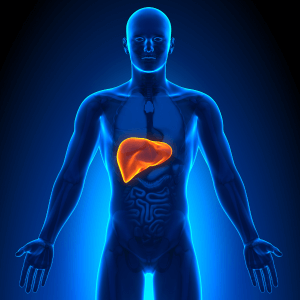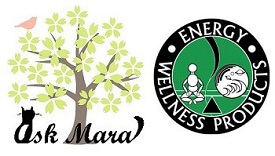Supplements for Liver Health
The hepatic system plays a huge role in our health and its function for the body is huge. Maintaining a healthy liver is crucial to overall health. Learn tips to keep your heaptic system healthy and supplements for liver health.
The hepatic system is made up of the liver and gallbladder. The liver is the largest organ in the human body and is located under the right rib cage. It weighs between 3 and 4 pounds and has two lobes, the left and right lobe with the right lobe being the larger lobe. The liver has two vital roles
- Making or processing chemicals
- Neutralizing poisons and wastes.
Functions of the Liver are performed by its creative cells known as hepatocytes. These cells are equipped to handle the basic substances (proteins, carbohydrates, and fats) our bodies run on. Our blood carries these substances into the liver in one form and the hepatocytes process these substances and they are then carried out of the liver in a form the body can use.
Main Functions of the Hepatic System
Protein Processing
The liver processes raw proteins from animal and vegetable sources into proteins that are acceptable to the body, excreting the waste. Proteins in the body are essential for the renewal and creation of cells, including the formation of hormones (the body’s chemical messengers) and in making enzymes.
Carbohydrate Processing:
Carbohydrates are the basic building blocks of all physical matter and are made up of carbon, hydrogen, and oxygen. Carbohydrates usually occur in sugary and/or starchy foods. Our bodies use carbohydrates for energy. Our muscles burn sugar-like substances for energy. The liver converts carbohydrates into glucose and glycogen. Glucose is used instantly for energy and glycogen (or extra sugar) is stored by the liver to be used later for energy. A balanced blood sugar level is essential for the body to maintain. A shortage can cause brain damage. The liver stores the excess sugar and assists the pancreas and adrenals in maintaining blood sugar levels.
Fat Processing:
Fats are also converted by the liver into useable forms and fats are transported by lipoproteins (aka cholesterol). LDL transports fats to the cells while HDL transports fats back to the liver for elimination. This useable form of fat from the liver is needed to build or renew existing fatty tissue. This fatty tissue is usually the layer beneath the skin which also acts as a shock absorber for the body.
Waste Disposal / Detoxification
Other cells in the liver (known as Kuppfer cells) “vacuum clean” the blood of its impurities. Some of these impurities are bacteria, excess red blood cells, and ammonia (which is produced when breaking down proteins). Fat (including cholesterol) and blood waste products pass out of the liver as bile. Bile is stored in the gallbladder until it is needed to play its part in the digestive process which deals mostly with fatty foods.
The Liver and Herbalism

The liver has many functions and herbalists place a great deal of importance on it. The Cherokee’s considered the liver to be the seat of healing. The Chinese feel the liver is life, the ruler of the blood and that it is the organ that harmonizes the function of all the other organs. Traditional Chinese Medicine associates the element of “wood” with the liver and gallbladder. The wood element represents the ability to grow, expand and live. Inflammation and stress can impact the liver.
Because the liver has so many important functions. Traditional Chinese Medicine places a huge emphasis on the role the liver plays in overall wellness. With this thought in mind, It is easy to understand how the liver becoming toxic or sluggish may relate to some of the following physical problems:
Digestive Symptoms
- Constipation – Bile acts as a natural laxative. If you are tight and restricted or lack bile, this can be an issue.
- Food allergies – This could be due to a lack of digestive enzymes or an overburdened liver that could be having problems processing certain nutrients.
- High cholesterol levels – Most of the body’s cholesterol is manufactured by the liver. Cholesterol is used by the body to bind with environmental toxins. Excess cholesterol is then removed through bile. If your liver is sluggish due to a lack of fiber or water, it could lead to elevated cholesterol levels.
- Intestinal gas bloating and stress – These symptoms could also signal mild liver dysfunction or sluggishness.
- Nausea vomiting and diarrhea – Could be caused by the liver dumping some excess toxins into the intestinal tract.
- Severe Body Odor – General sign of body toxicity and some feel it is time for some cleansing. Usually related to digestive sluggishness.
Metabolic Concerns
- Diabetes – The liver works with other organs to maintain blood sugar levels.
- Hormonal imbalances and PMS – one of the responsibilities of the liver is to break down excess hormones, so if you have problems with liver enzymes due to sluggishness you may not be able to break down the hormones causing an imbalance.
- Hyperactivity – Irritation in the liver can make a person feel on edge and may even contribute to hyperactivity in children.
- Hyperglycemia – Inadequate stores of glycogen in the liver due to it being over burdened or sluggish.
- Insomnia – Traditional Chinese Medicine, feels the liver is most active at around midnight, so if you feel restless in the evening and are unable to fall asleep it could be due to the liver, especially if you wake up feeling groggy.
Other Concerns
- Flushing of the face and hot flashes – It is believed by Traditional Chinese Medicine that the liver can cause the sensation of heat.
- Groggy, sluggish feelings including brain fog – These feelings could also be associated with a sluggish liver showing us that our system is becoming toxic and having problems getting rid of these toxins.
- Hay fever or allergy-induced asthma – The liver breaks down extra histamine through its enzymatic detoxification process. If this process becomes sluggish, histamine reactions can occur more frequently in the body causing some people to experience respiratory problem.
- Headaches or migraines – If the liver is sluggish or you are dehydrated making it difficult to flush some of the toxins, you may experience frequent headaches or migraines.
- Skin Disorders – In Western Herbalism skin disorders (acne, eczema, psoriasis, rashes, etc) are thought to be due to impure blood and are treated with herbs known as blood purifiers. Most of these herbs also improve the liver and the lymphatic system.
- Varicose veins – usually if one has sluggish venous circulation, they have a sluggish liver.
The Hepatic System and Emotions
Some people believe that the following emotional problems are also associated with the liver:
- Anger, irritability and defensiveness – Traditional Chinese Medicine sees the liver as the seat of anger. Anger is the emotion that allows us to stand up and protect ourselves. If you relieve liver congestion you will lose your anger.
- Depression and discouragement – These feelings can be created by a sluggish liver.
Just because you have some of these physical or emotional symptoms does not mean you have a sluggish or congested liver. It is just merely to educate you on how much a role the liver plays in so many of the body’s processes.
Lifestyle Tips and Supplements for the Liver
- Reduce the amount of chemicals from pesticides and food including alcohol you intake
- If you work around chemicals, make sure to wear protective clothing
- Use natural household cleaning products to avoid heavy metals and chemical solvents like formaldehyde
- Try to limit your exposure to environmental toxins
- Drink lots of water
- Dry Skin Brush to Promote Detoxification
- If you choose to add supplements for liver health. My favorite overall support is Milk Thistle Combination from Nature’s Sunshinee Products. If you are wanting to gently cleanse the liver I really like Liver Cleanse and for a deeper cleanse Tiao He 15 Day Cleanse works great.
Reference: Steven Horne
